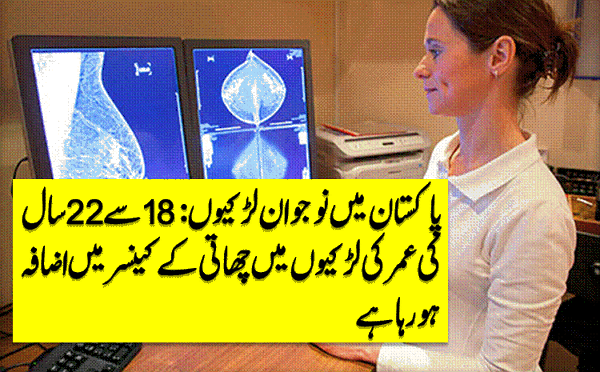Lahore (WebDesk) Pakistan has the highest rate of breast cancer in Asia and its incidence is alarmingly increasing in young girls aged 18 to 22.
Addressing at an awareness seminar on Breast Cancer here at the University of Health Sciences (UHS) on Thursday, Pink Ribbon Campaign’s Assistant Programme Manager, Sonia Qaiser, said that breast cancer is the most common cancer among women in the world and every year 1.3 million women are diagnosed with this disease. She said that one out of 9 women in Pakistan is at risk of contracting the disease in her lifetime. She added that around 90,000 cases are reported every year in the country out of which 40,000 women die of this disease. She emphasized that it is the right of every woman to know about fatal diseases and society should support their cause rather than considering the issue a social taboo.
UHS acting Vice Chancellor Prof Muhammad Tahir said that early detection of breast cancer is the mantra to improve treatment outcomes, longevity and quality of life. While sharing the challenges in combating breast cancer, he said Pakistan has to overcome countless barriers such as illiteracy, misconception, social stigma and lack of health facilities. He also pointed out some ethical issues in the detection and treatment of the disease.
Lady Wallington Hospital’s associate professor, Dr Lubna Jawaid, gave a presentation on effects of Vitamin D levels on breast cancer. She said that Vitamin D3 deficiency is now recognized as one of the most significant and preventable risk factors for breast cancer. She added that there are scientific evidences that breast cancer incidence reduces upto 80 per cent with vitamin D. “To maximize the potential for cancer prevention, get Vitamin D serum levels to at least 40-60 ng/ml or higher”, she advised.
Oncologist Dr Najam ul Hasan said that awareness about breast cancer is catching up. “Girls should start self-examination of their breasts from the age of 18. Women are still hesitant to come in for screening. They are afraid of cancer and think they will never get it. Even educated persons think cancer means death, but it is not so”, he added. Breast cancer is no longer a death sentence, and to get this message across, there must be efforts to dispel fears and infuse optimism into the lives of hundreds of women, their families and the community at large, he concluded.

Post a Comment